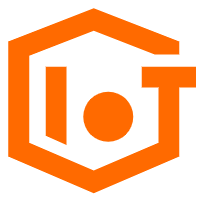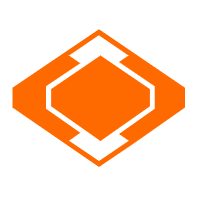By Alex Muchiri, an Alibaba Cloud MVP. He is the founder of Itesyl Technologies, a financial data and business banking solutions company.
Advances in technologies, such as analytics, cloud computing, and IoT, are changing our world fundamentally. In the present context, people and enterprises communicate at speeds not seen before, disseminating information faster than ever. The interconnection of various mechanical components into a seamless network (known as IoT) including sensors helps speed up decision-making. IoT is a game-changer in many ways such as improving efficiency, increasing convenience, safety, health, and comfort. IoT devices fall into three major categories:
While there is potential for IoT to expand to many aspects of everyday lives, it is still a nascent technology. It will probably take five to ten years to realize the full impact. Let's take a look at some of the most important changes anticipated.
The internet largely constitutes independent applications and networks. In fact, interconnected systems are yet to take route due to the associated complexity and network demands. However, as more devices go online and hook onto the daily lives of people, this will change in many ways. A single device in your living room could be connected to billions of devices all across the world, sharing information and making life easier. It is this transformation that will transform the internet from a simple network to a massive ecosystem composed of millions of communicating devices.
Coupled with cloud technologies, connected devices will better adapt their function with time by learning from the cloud platforms. It will be possible for medical devices to communicate with autonomous cars, machines to consumer gadgets, and transportation infrastructure to government and planning. This is contrasting to the way the internet works today.
In Industry 4.0, industrial applications interconnect with an IoT nervous backbone. This will benefit the most from advances in IoT, covering many aspects of productivity. The integration of machine communication and collaboration in the industry will have as much impact as the 18th-century industrial revolution. The present-day industry is embracing automation and robotics. In the future, such advances will go even further to make machines intelligently scale up and scale down production based on demand. When machines are embedded with sensors and linked to a cloud platform, the data collected can help with machine diagnosis and performance improvement. Machines can proactively improve performance based on data supplied from a cloud platform. It would also help detect failing components based on their performance, thus improving safety and reducing downtime.
IoT will lead to the explosion in the use of cloud and related technologies. As connected devices need to share data, the cloud provides a reliable, affordable way to connect them, analyze the data, and provide feedback. The need for cloud-based applications to serve IoT networks will lead to faster adoption of the cloud. The cloud acts as the glue that makes all components in a network function together. But this comes at a cost.
Connectivity of devices that continuously collect personal information leads to loss of privacy. Moreover, cybercriminals could potentially gain access to the data and will exploit it. As more devices connect to the internet, cybersecurity should evolve to mitigate the risks better.
A smart city incorporates connectivity, data, cloud, and IoT technologies in its response and planning. Such a city uses advanced sensing and analytics to manage the daily aspects of its citizens including traffic management, garbage management, housing planning, road planning, power, and water distribution. However, to attain that level of sophistication, there ought to be sensors embedded in almost every component in the city and an advanced analytics platform to help it see through the data. Cities of the future will respond to change quickly and make autonomous decisions informed by IoT networks.
IoT will radically change how we live in our homes. Home appliances will become smarter when they connect to the internet and serve to make our lives more comfortable. For instance, a smart fridge could suggest recipes based on its contents, or send alerts when you run out of vegetables. Smart fire detectors could inform the local fire department in case of an emergency. The list is endless, but these applications alleviate some of the challenges we face at home; even just making that coffee when you get back from work.
Finally, healthcare management will immensely benefit from IoT due to the inherent use of sensors to collect patient data. In an interconnected ecosystem, devices will collect patient data and send it to a cloud analytics platform. It could help detect illnesses early or help with an accurate diagnosis. Health professionals of the future will not merely rely on the information provided by their patients but also on data collected by wearable devices. This is already happening with fitness bands and smartwatches.
Alibaba Cloud IoT platform is a solution for smart technology providers to quickly build stable, cost-efficient, reliable, and ubiquitous platforms. It allows IoT companies to establish stable communication between devices and the IoT Platform. Featuring nodes deployed globally, devices around the world can communicate with the IoT platform rapidly with low latency.
Alibaba Cloud IoT Platform also provides security measures that guarantee individual device security as well as secure communication between devices and the IoT platform. Critical to Alibaba Cloud's IoT Platform is its data storage and processing capabilities that allow the integration of APIs and other Alibaba Cloud services. The IoT platform is highly customizable, featuring a rules engine for rapid data collection, storage, and application development.
The solution offers several benefits:
IoT will revolutionize industries, cities, and our personal lives. While there are many positives about this change, there are also significant challenges to encounter in security, privacy, and complexity. As more devices collect and share information, storing information securely, and analyzing it affordably becomes critical. The use of proprietary systems such as the Alibaba Cloud IoT Platform may solve some of these problems. Overall, IoT will benefit businesses and industries and we cannot let the drawbacks weigh down the commitment to advance this new technology wave.
Alex - July 9, 2020
Alibaba Clouder - December 21, 2018
Rupal_Click2Cloud - June 1, 2022
Lana - March 24, 2023
Alibaba Cloud Community - April 30, 2024
Alibaba Clouder - June 16, 2021
 IoT Platform
IoT Platform
Provides secure and reliable communication between devices and the IoT Platform which allows you to manage a large number of devices on a single IoT Platform.
Learn More IoT Solution
IoT Solution
A cloud solution for smart technology providers to quickly build stable, cost-efficient, and reliable ubiquitous platforms
Learn More Storage Capacity Unit
Storage Capacity Unit
Plan and optimize your storage budget with flexible storage services
Learn More Global Internet Access Solution
Global Internet Access Solution
Migrate your Internet Data Center’s (IDC) Internet gateway to the cloud securely through Alibaba Cloud’s high-quality Internet bandwidth and premium Mainland China route.
Learn MoreMore Posts by Alex